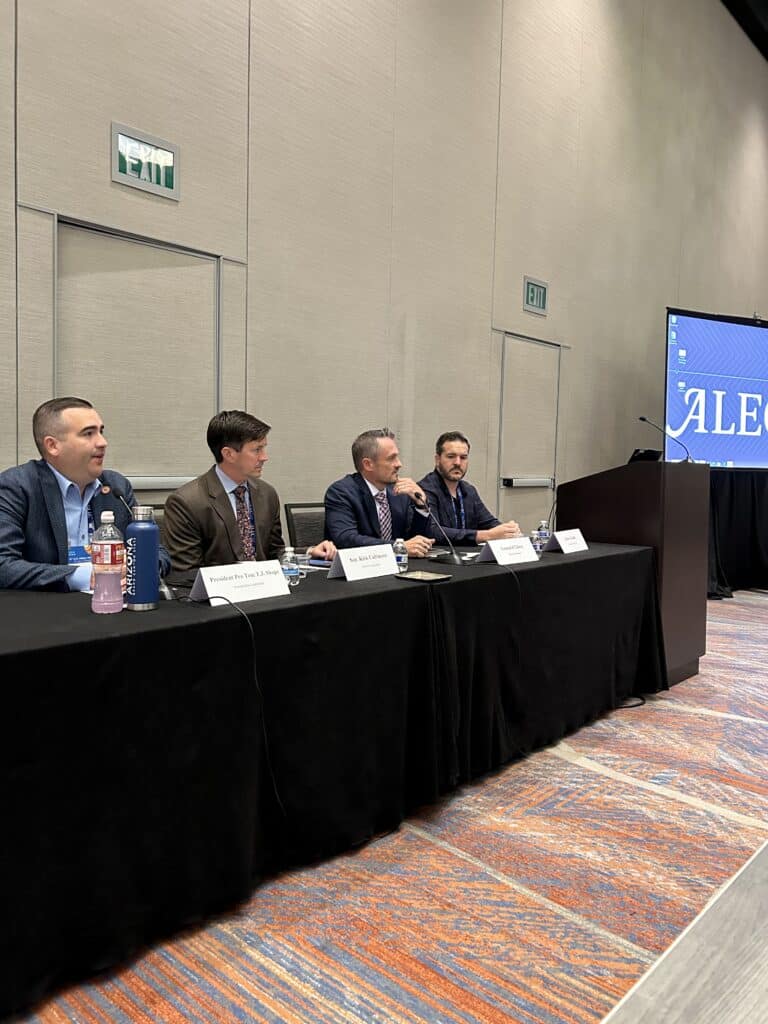Welcome to Reason Foundation’s newsletter on psychedelics policy. This edition covers:
- A field report on the impacts of natural medicine legalization on Colorado
- A presentation at a gathering of conservative legislators
- Commentary on FDA approval of MDMA
- The psychedelic origins of Whole Foods
- Round-up of state-based policies
- A Canadian study of patients
A look at how psychedelic legalization has played out in Colorado
Reason Foundation recently published a glimpse into Colorado’s legal psychedelics scene. The field report assesses the public health impacts of legalizing possession of botanical psychedelics over a year since Proposition 122 was implemented, looks at crime statistics and hospitalization rates, and explores this data with on-the-ground reporting from a variety of psychedelic experiences in Denver. You can the report here.
Reason at ALEC

Reason Foundation hosted a panel discussion of state-level psychedelic reforms at the American Legislative Exchange Council (ALEC) annual meeting, a large gathering of free-market policymakers who debate issues and form model legislative templates for use in states around America.
Reason Foundation Vice President of Government Reform Leonard Gilroy moderated the psychedelics panel, joined by Heroic Hearts Founder Jesse Gould, Utah State Sen. Kirk Cullimore (R-Sandy), Arizona State Senate President Pro Tempore T.J. Shope (R-Pinal County).
After Gould gave background information about the personal experiences of veterans seeking treatment abroad, the lawmakers on the panel spoke about their experiences sponsoring legislation to legalize psychedelic therapies to a full room of attendees.
Arizona’s Shope spoke about his experience passing a bill to legalize professional psilocybin services. The bill was ultimately vetoed by the governor. He took to X (formerly Twitter) after the panel, saying, “I look forward to bringing the bill back to the Legislature next year.”
The FDA can still legalize MDMA
Earlier this month, an advisory panel to the Food and Drug Administration (FDA) recommended that the agency reject Lykos Therapeutic’s new drug application for an MDMA-based treatment, citing many scientific challenges for the research design.
“It’s hard to have a double-blind, placebo-controlled trial” for a psychedelic substance, acknowledged Lykos Board member Rick Doblin on stage at the Aspen Ideas Festival last June.
Reason Foundation penned a commentary highlighting an existing pathway through which the FDA can still safely approve MDMA for the treatment of Post Traumatic Stress Disorder.
It’s worth noting that shortly after the advisory committee opposed approval, a Dutch Agency recommended that MDMA be approved in the Netherlands.
An FDA decision is expected by Aug. 11.
Whole Foods’ psychedelic origins
Whole Foods co-founder John Mackey published a new book, The Whole Story, which relays the history of the iconic grocery store, including how he drew inspiration through his experiences with psychedelics. Reason Editor at Large Nick Gillespie interviewed Mackey in June, discussing his psychedelic inspiration and political philosophy.
Around the 34:30 mark of the video, Mackey describes how LSD inspired him to seek spirituality and, ultimately, set him on an unorthodox path to creating a healthy grocery store.
State roundup
A ballot initiative to legalize botanical psychedelics has qualified for the upcoming election in Massachusetts. If the ballot initiative in Massachusetts passes, the state would undergo a regulatory process similar to what Colorado has seen.
Reason Foundation experts submitted written comments to the Colorado agencies (Colorado’s Department of Revenue and Department of Regulatory Agencies), which have just concluded public hearings before rendering final rules for a regulated psychedelics market.
More details about state activity are available in the latest state roundup.
Canada psilocybin study
Canada offers a legal pathway for patients to access psilocybin through a special compassionate use program under medical supervision. A new study in Nature finds that patient experiences have been positive so far.
“These preliminary data are amongst the first to suggest that psilocybin-assisted psychotherapy can produce psychiatric benefits in real-world patients akin to those observed in clinical trials,” the authors conclude.
